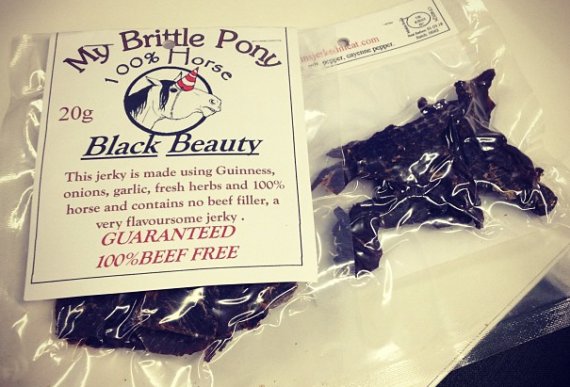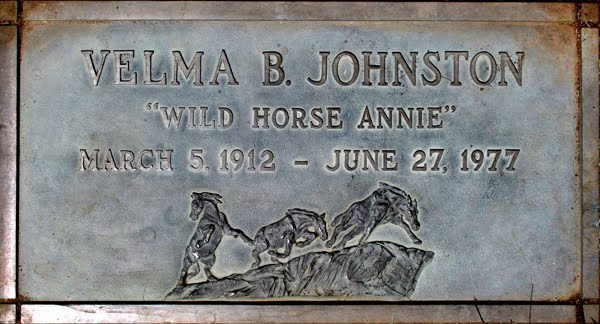
Posted on 01/23/2018 7:37:02 PM PST by where's_the_Outrage?
Same article: “With its wild horse and burro budget crippled by the nearly $50 million annual feed bill, the BLM has completely forsaken trying to keep horses on public rangelands at the Appropriate Management Level on a nationwide scale. That has allowed exponential growth to the current population of 75,000, nearly three times the appropriate level.”
What kind of crud answer is that?
Rural areas have the problems with deer. There are extremely few crashes with deer in cities, while it’s very common in the country.
There's a really good and entertaining documentary on Netflix called "Unbroken". Four young A&M graduates tame Mustangs and ride them from Mexico to Canada. Lots of info on wild mustangs and the BLM. I can almost guarantee you'll like it a lot.
Wild horses are an invasive species. They drive off native species such as deer, antelope and wild sheep.
I only wish ABC had as much sympathy for pre-born people.
Obama my have done something right:
USDA approves slaughterhouses producing horse meat for human consumption
Where there is an excess of wild horses there are no cattle grazing because the horses eat the feed down to nothing and destroy the graze for years. Then the horses starve to death.
These horses are not indigenous animals. If they were a fish they would poison the lake to get them out of it.
The last big BLM gather I witnessed more than 10% of the horses died from the stress of the gather because they were so starved they could not handle it. They had so overfed the range they could not run two miles.
The wolves are coming to the wild horse country, maybe they are the answer. I’m sure the horse worshipers would much rather have the wolves run them down, kill them slowly and begin eating them before they are even dead.
Like it or not the wolves will one day feed on these horses and the larger the numbers the more wolf feed they will become. The more wolves that are eating well, the more little wolves there will be and the more horses they will kill and eat.
But of course that is better and more humane than thumping them in the head and dispatching them quickly and without all that pain.
The kicker to this is that the wolves are indigenous animals and protected in most states so they will not kill the wolves to protect the horses.
Guess it's where you are. Plenty of deer in our part of Texas. Saw a half dozen or more on my way home (in the country) tonight. In fact, you better drive slow and pay attention or you're likely to run over one at night on almost any country road in our county.
Deer hunting is a good source of income for land owners around here. And if it weren't allowed, we'd be overrun with deer dying from starvation.

send the horses to Venezuela
for adoption
I had a mustang that some people had adopted and didn’t want because he wasn’t broken, so they dumped him on my friend’s property. He didn’t want the horse and gave him to me. He was pretty wild at first, but after I trained him he was the best horse I ever had.
And cattle are native species that don't eat grass which could be used for deer, bison, etc.? Horses were native here thousands of years ago. Not cattle.
I thought the Spaniards brought the horses.

I wonder if they mentioned her in that Netflix show "Unbroken"? I'll have to check that out! Thanks!
These are not wild horses, they are feral horses and should be slaughtered humanely. They don’t belong in the wild any more than feral dogs do.
>And cattle are native species that don’t eat grass which could be used for deer, bison, etc.? Horses were native here thousands of years ago. Not cattle.
Cattle are owned and controlled. Horses were introduced to North America by the Spanish. Equis native to North America became extinct 11,000 - 13,000 years ago.
There was a very informative July 24, 2008 article on the LiveScience website:
Modern horses, zebras, and asses belong to the genus Equus, the only surviving genus in a once diverse family, the Equidae. Based on fossil records, the genus appears to have originated in North America about 4 million years ago and spread to Eurasia (presumably by crossing the Bering land bridge) 2 to 3 million years ago. Following that original emigration, there were additional westward migrations to Asia and return migrations back to North America, as well as several extinctions of Equus species in North America.
The last prehistoric North American horses died out between 13,000 and 11,000 years ago, at the end of the Pleistocene, but by then Equus had spread to Asia, Europe, and Africa.
Animals that on paleontological grounds could be recognized as subspecies of the modern horse originated in North America between 1 million and 2 million years ago. When Linnaeus coined the species name, E. caballus, however, he only had the domesticated animal in mind. Its closest wild ancestor may have been the tarpan, often classified as E. ferus; there is no evidence, though, that the tarpan was a different species. In any case the domesticated horse probably did not arise at a single place and time, but was bred from several wild varieties by Eurasian herders.
In recent years, molecular biology has provided new tools for working out the relationships among species and subspecies of equids. For example, based on mutation rates for mitochondrial DNA (mtDNA) Ann Forstén, of the Zoological Institute at the University of Helsinki, has estimated that E. caballus originated approximately 1.7 million years ago in North America. More to the point is her analysis of E. lambei, the Yukon horse, which was the most recent Equus species in North America prior to the horse's disappearance from the continent. Her examination of E. lambei mtDNA (preserved in the Alaskan permafrost) has revealed that the species is genetically equivalent to E. caballus. That conclusion has been further supported by Michael Hofreiter, of the Department of Evolutionary Genetics at the Max Planck Institute in Leipzig, Germany, who has found that the variation fell within that of modern horses.
These recent findings have an unexpected implication. It is well known that domesticated horses were introduced into North America beginning with the Spanish conquest, and that escaped horses subsequently spread throughout the American Great Plains. Customarily, such wild horses that survive today are designated "feral" and regarded as intrusive, exotic animals, unlike the native horses that died out at the end of the Pleistocene. But as E. caballus, they are not so alien after all. The fact that horses were domesticated before they were reintroduced matters little from a biological viewpoint. Indeed, domestication altered them little, as we can see by how quickly horses revert to ancient behavioral patterns in the wild.
Consider this parallel. To all intents and purposes, the Mongolian wild horse (E. przewalskii, or E. caballus przewalskii) disappeared from its habitat in Mongolia and northern China a hundred years ago. It survived only in zoos and reserves. That is not domestication in the classic sense, but it is captivity, with keepers providing food and veterinarians providing health care. Then surplus animals were released during the 1990s and now repopulate a portion of their native range in Mongolia and China. Are they a reintroduced native species or not? And how does their claim to endemism differ from that of E. caballus in North America, except for the length and degree of captivity?
The wild horse in the United States is generally labeled non-native by most federal and state agencies dealing with wildlife management, whose legal mandate is usually to protect native wildlife and prevent non-native species from having ecologically harmful effects. But the two key elements for defining an animal as a native species are where it originated and whether or not it coevolved with its habitat. E. caballus can lay claim to doing both in North America. So a good argument can be made that it, too, should enjoy protection as a form of native wildlife.
No. They didn’t mention her. You’re gonna LOVE “Unbroken”.
There never was a wild horse problem when the Comanches roamed the plains.
Disclaimer: Opinions posted on Free Republic are those of the individual posters and do not necessarily represent the opinion of Free Republic or its management. All materials posted herein are protected by copyright law and the exemption for fair use of copyrighted works.